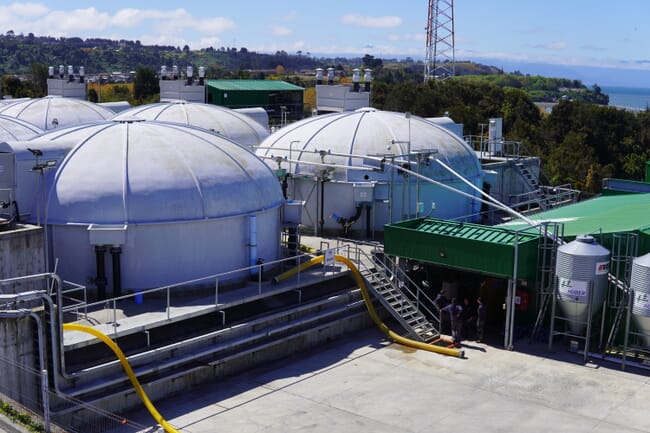
© Lago Sofia
Lago Sofia has attained the highest level of compliance in the 'WELF CERT' standard, issued by certification company FSTeam, endorsed by the Chilean Animal Welfare Association, and based on local regulations and recommendations of the World Organization for Animal Health (OIE). This means the smolt producer has met the highest standards in compliance of procedures, practices and protocols aimed at improving farmed fish welfare.
Implementation and key aspects
According to Miguel Portus, CEO of Lago Sofia, the company began the certification process six years ago, when it started redesigning its smolt farm and planning to adopt animal welfare best practices. They then received support from Stirling University researcher and animal welfare specialist, Dr Sunil Kadri, who helped Lago Sofia to raise awareness of the importance of animal welfare, among its employees.
"In the last two years we started working on procedures, establishing what could be improved and optimised and then began making adjustments to specific processes and feeding and vaccination protocols," Portus said in a press release, adding that "you can talk about cortisone and cortisol levels; density; feeding practices; management; additives or products used in farming, but in reality, it all comes down to responsible and respectful farming.”
Portus also highlighted that Chinquihue is an individual RAS (recirculating aquaculture system) farm, which helped to facilitate implementation.
"A stable environment is important for smolt wellbeing and the only way to really control the variables of fish farming is with recirculation, which offers so many tools for accurately controlling the required parameters and improves efficiency. Individual RAS farms have the added advantage of having a determined limit to the number of fish in each unit, which makes it easier to deal with particular problems specific to that unit without affecting the whole stock," said Portus.
Costs and advantages
It was highlighted that adhering to this standard is voluntary and not a regulatory requirement, implementation costs are a decisive factor when choosing whether to follow this approach. According to Portus, while costs are significant, it is cheaper to implement this standard when building a land-based farm from scratch rather than adapting an existing facility to new practices.
Meanwhile, Roberto Becerra, a veterinarian and the CEO of FSTeam, said that the purpose of WELF CERT certification is not to be able to sell products at a higher price. He stated: "Our motto is 'to democratise animal welfare. We want anyone who is interested in animal welfare to be able to purchase certified products from supermarkets without having to pay more for them," adding that FSTeam works to help producers improve animal welfare and even boost productivity and, as a result, gain better access to their target markets.
The future of animal welfare in Chile
Given that Lago Sofia is only involved in growing fish between 130g and 250g in weight, the senior team commented that it will be interesting to observe how this approach is applied throughout the whole salmon farming industry and at a regulatory level as well. Portus is confident that other salmon producers will follow the same example. "The industry has been working on this issue for some time now and been looking closely at it. The Pincoy project has already been working towards introducing animal welfare standards," he said.
Becerra said that, although this is their first client in the salmon industry, FSTeam has experience certifying animal welfare for domestic and foreign poultry and pig producers.
"We believe we’re going to see more regulatory requirements on this globally. While there are three specific regulations for terrestrial animals, enforced by the Agriculture and Livestock Service (SAG), there is still no specific legislation that applies to the aquaculture sector, apart from several recommendations made by the World Organization for Animal Health (OIE). In general, animal welfare is today a growing concern for consumers and legislators, so I have no doubt that more legislation will be introduced over time," he said.
In conclusion, Becerra said that "animal welfare is not a fad, it is a moral, productive and legal obligation. The challenge is to democratise animal welfare and make it available to everyone. In other words, hopefully, eventually animal welfare-certified products will be available to everyone without having to pay more for them."




